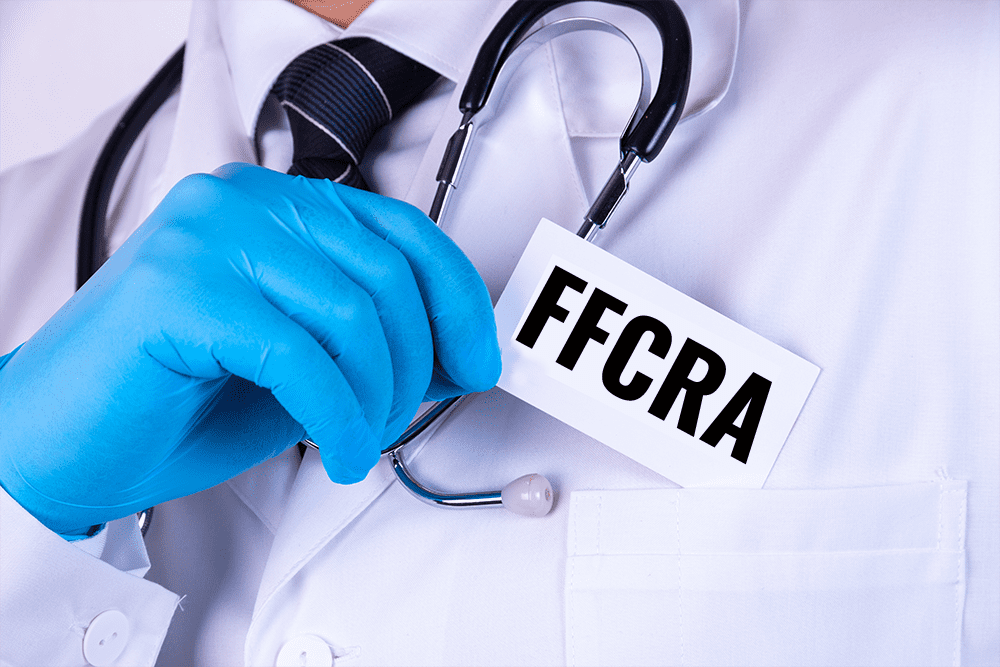The COVID-19 outbreak is drastically changing American life, seemingly overnight. While certain industries have been hit especially hard already, it is likely this pandemic will have an impact on every business sector. Employment attorney Alyson Brown looks at this evolving situation and its impact on employers.
The recently passed Families First Coronavirus Response Act (FFCRA) makes some major changes for employers. This article covers some of the major FFCRA amendments as well as other key considerations for businesses, including:
- Amendments to the Family Medical Leave Act
- Paid Sick Leave
- Payroll Tax Credits
- Workplace Health and Safety Requirements
- Contractual Disruptions
Given the current trajectory, it is both possible and likely that even more changes will occur in the upcoming weeks. The following outline is based on information available as of March 19, 2020. When feasible, actual quotes have been used to promote clarity in an otherwise confusing time.
Key Amendments to the Family Medical Leave Act (Emergency Family and Medical Leave Expansion Act [EFMLEA])
All public companies and private companies with fewer than 500 employees must comply with the Emergency Family and Medical Leave Expansion Act. All employees who have worked for a qualified employer for at least 30 days are protected by the Amendment. Employees qualify for EFMLEA leave if they are under a government isolation order, have the virus, have symptoms of the virus, are exposed to the virus, must care for someone who has the virus, or must care for their minor child due to school closings.
- The Emergency Family and Medical Leave Expansion Act has a different term than the FFCRA. The emergency family leave provisions of the Act are applicable through December 31, 2020.
- The employer threshold has been changed. The employer threshold for the Emergency Family and Medical Leave Expansion Act has been changed to employers with “fewer than 500 employees.” (p. 29, FFCRA). This is a slight change from the Family and Medical Leave Act which normally applies to businesses which employ 50 or more employees. In this new act, the Department of Labor has been granted the authority “to exempt small businesses with fewer than 50 employees…when the imposition of such requirements would jeopardize the viability of the business as a going concern.” (p. 30 FFCRA).
- The definition of eligible employees has changed. “The term ‘eligible employee’ means an employee who has been employed by the employer for at least 30 calendar days.” (p. 28, FFCRA).
- Multiple new “qualifying leave” events. The Act identifies multiple forms of “qualifying leave.” In a nutshell, employees can qualify for leave if they are subject to a Federal, State, or local quarantine or isolation order; they’ve been advised by a health care provider to self-quarantine; or they’re experiencing symptoms of COVID-19 and seeking a medical diagnosis. They also qualify for leave if they must care for another family member that has the virus. Finally, employees may qualify for leave if they cannot work because their child under the age of 18 cannot attend school or daycare because of coronavirus-related closings. (pp. 44-45, FFCRA).
Paid Sick Leave
If an employee needs to take more than 10 days leave for any of the reasons provided under the Emergency Family and Medical Leave Expansion Act, an employer must pay the employee a portion at least 2/3rds of their regular pay (up to $200/day) for up to 80 hours of leave.
- First 10 days can be unpaid. “The first 10 days for which an employee takes leave under the Emergency Family and Medical Leave Expansion Act may consist of unpaid leave.” (p. 31, FFCRA).
- Employees can substitute pre-existing paid leave. Employees may opt to “substitute any accrued vacation leave, personal leave, or medical or sick leave for unpaid leave…” (p. 31, FFCRA).
- Calculating amount of pay during leave. Employers must provide paid leave for “each day of leave…that an employee takes after taking leave under such section for 10 days” and such paid leave shall be “an amount that is not less than two-thirds of an employee’s regular rate of pay…and the number of hours the employee would otherwise be normally scheduled to work.” (p. 31-32, FFCRA). “In no event shall such paid leave exceed $200 per day and $10,000 in the aggregate.” (p. 32, FFCRA).
- Full and part-time employees entitled to paid sick leave. Full time employees will be entitled to 80 hours of paid sick time and part-time employees will be entitled to “a number of hours equal to the number of hours that such employee works, on average, over a 2-week period.” (p. 45, FFCRA).
- Emergency leave is in addition to existing paid leave and does not carry over. Paid sick leave under this Act will not carry over from one year to the next. (p. 45, FFCRA).
Payroll Tax Credits
Recognizing that the emergency paid leave requirements could financially burden employers, Congress has approved a Payroll Tax Credit for required sick leave payments.
Specifically, employers shall be allowed a tax credit for each calendar quarter in “an amount equal to 100 percent of the qualified sick leave wages paid by such employer with respect to such calendar quarter.” (p. 84, FFCRA).
The credit “shall not exceed the tax imposed…for such calendar quarter.” If the amount of the credit exceeds the tax imposed for any calendar quarter, “such excess shall be treated as an overpayment that shall be refunded…” (p. 85, FFCRA).
This same credit applies to eligible self-employed individuals as well. An eligible self-employed individual is anyone who “regularly carries on any trade or business…and would be entitled to receive paid leave…pursuant to the Emergency Paid Sick Leave Act.” (pp. 90-91, FFCRA).
Workplace Health and Safety Requirements
Businesses that continue operations during the pandemic are still responsible for ensuring a safe and healthy working environment. This means following OSHA guidelines with respect to sanitizing the workplace, requiring personal protective equipment as needed, and preventing the spread of known contagions while maintaining employee confidentiality.
- OSHA Guidance. The Occupational Safety and Health Act requires employers to provide a safe and healthy workplace. OSHA has already released a guidance document on coronavirus in the workplace. It is an employer’s responsibility to identify and isolate any potentially infectious people in the workplace and protect the safety of other employees.
- Travel Restrictions. OSHA rules also prohibit employers from putting employees in situations likely to cause serious physical harm or death. The CDC has advised against all non-essential travel. Because airports and travel hubs tend to draw crowds, they are particularly high-risk areas for the spread of COVID-19. While no government offices have officially banned business travel at this time, it is a possibility in the coming weeks. Likewise, business owners could be at risk of exposing a traveling employee to illness which may lead to OSHA complaints and potential penalties. Bottom line, travel is likely not worth it at this time.
- Employee Personal Health Privacy. While employers have a duty to keep a safe and healthy workplace, they cannot reveal an employee’s private health information. Employers must respond discretely to prevent the spread of illness in the workplace without revealing the personal identities of any of those who may be infected. Employers are advised to contact their local health department if they discover a potentially infected employee for instructions on how to best proceed.
Contractual Disruptions
In areas around the globe, COVID-19 has already disrupted trade and businesses. If the pandemic interrupts the delivery of goods or services in the United States as it has elsewhere, businesses may need to take advantage of “force majeure” clauses. While Force Majeure clauses have not traditionally been associated with quarantines, government restrictions on the movement of goods and people will likely qualify under most states’ interpretation of the term. The fact that the World Health Organization has declared COVID-19 a global pandemic, and our government has declared a national emergency will likely be enough to trigger Force Majeure.
Stay Up to Date with the Latest Breaking News and Regulations
Employers, like all Americans, will need to remain vigilant and stay up to date on changes as they occur in real-time. The Department of Labor has been charged with providing Notices of these changes and employers will be required to post the notices. In the meantime, it is worth following the Department of Labor, OSHA, and official government websites for the most up-to-date information and guidance.



 Alyson Brown represents employers and executives in all facets of the employment relationship. Board Certified in Labor and Employment Law by the Texas Board of Legal Specialization, Alyson has tried cases in state and federal courts throughout Texas and in other states. She represents clients in a broad range of industries, including health care, banking, energy, high-tech, retail, manufacturing, hospitality and nonprofit organizations. She can be reached at
Alyson Brown represents employers and executives in all facets of the employment relationship. Board Certified in Labor and Employment Law by the Texas Board of Legal Specialization, Alyson has tried cases in state and federal courts throughout Texas and in other states. She represents clients in a broad range of industries, including health care, banking, energy, high-tech, retail, manufacturing, hospitality and nonprofit organizations. She can be reached at 






